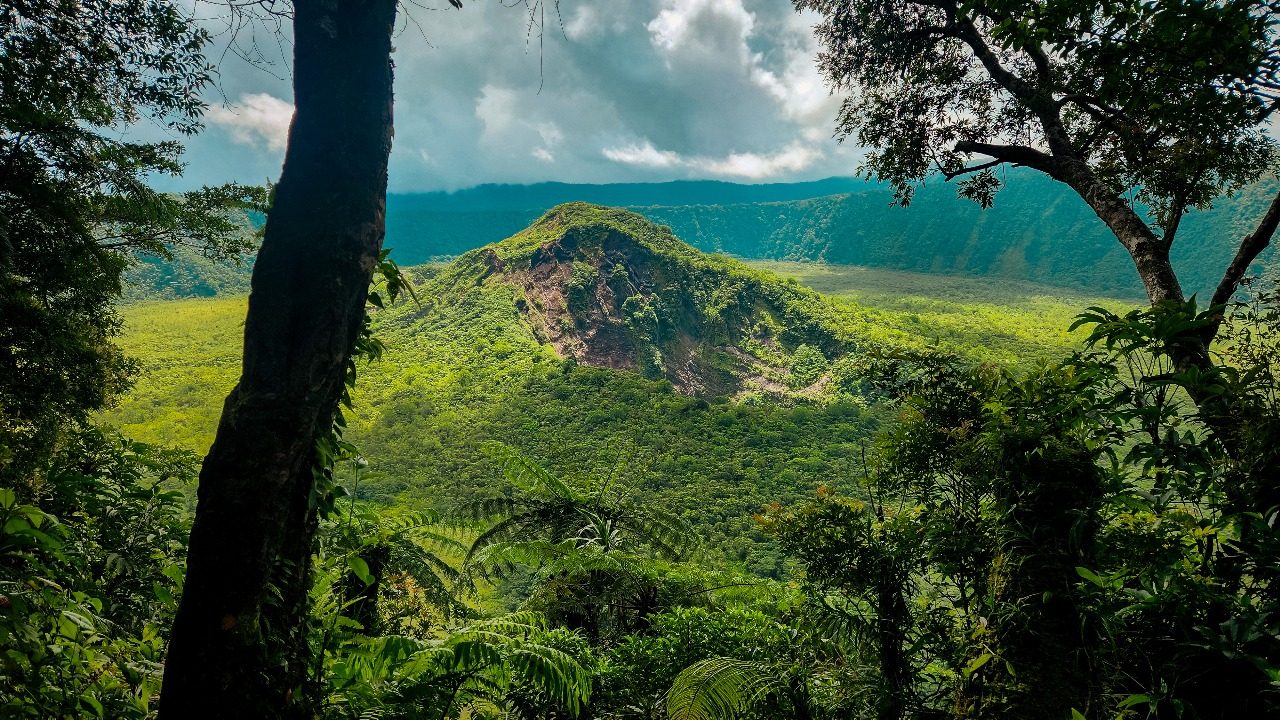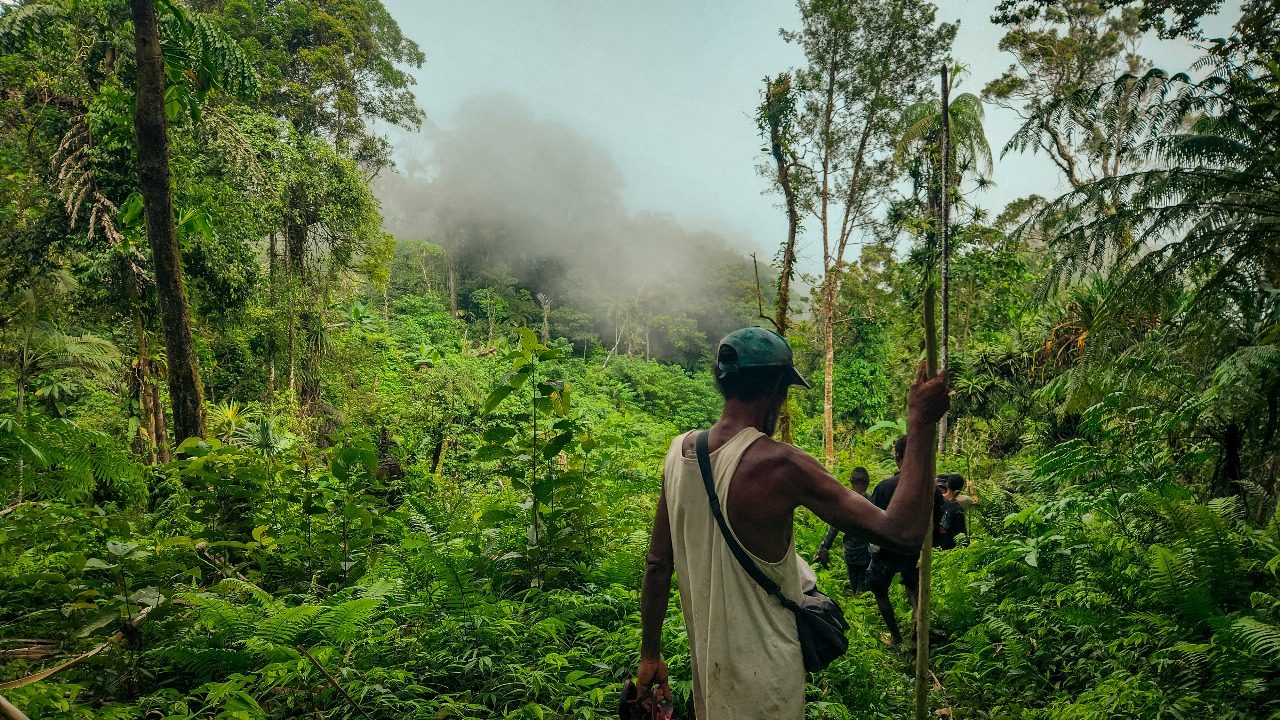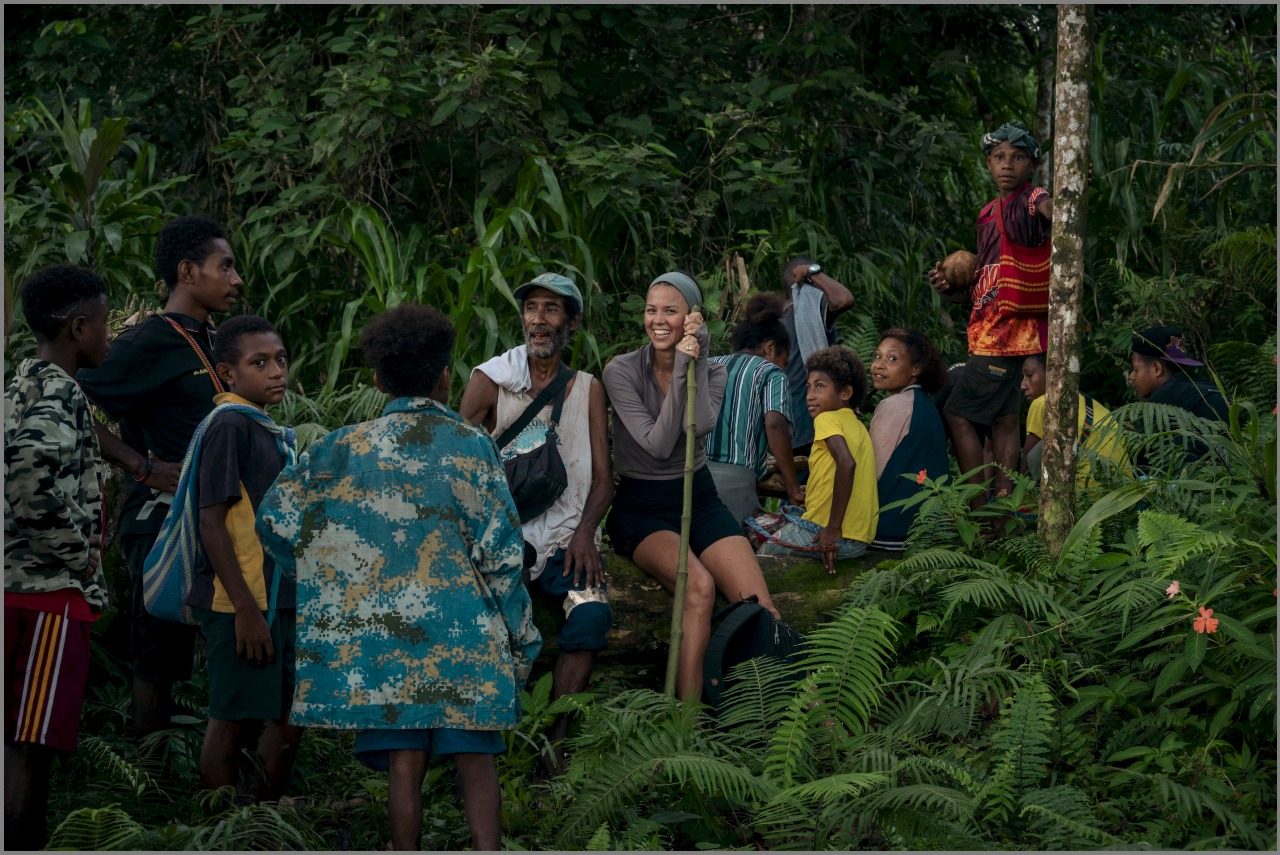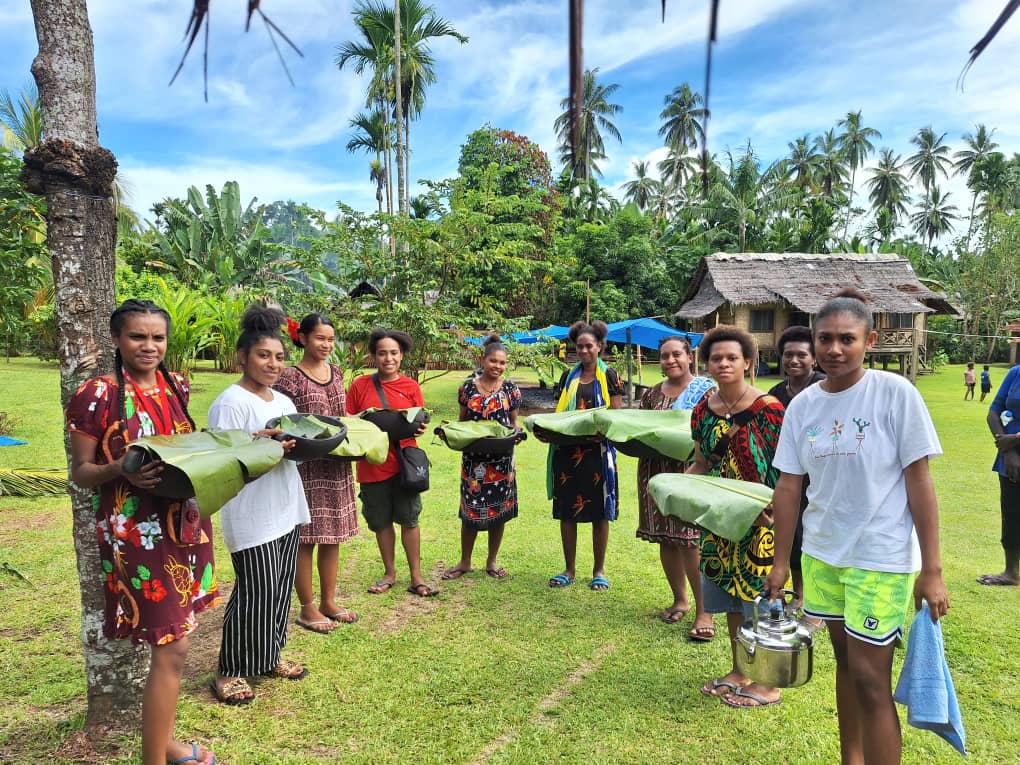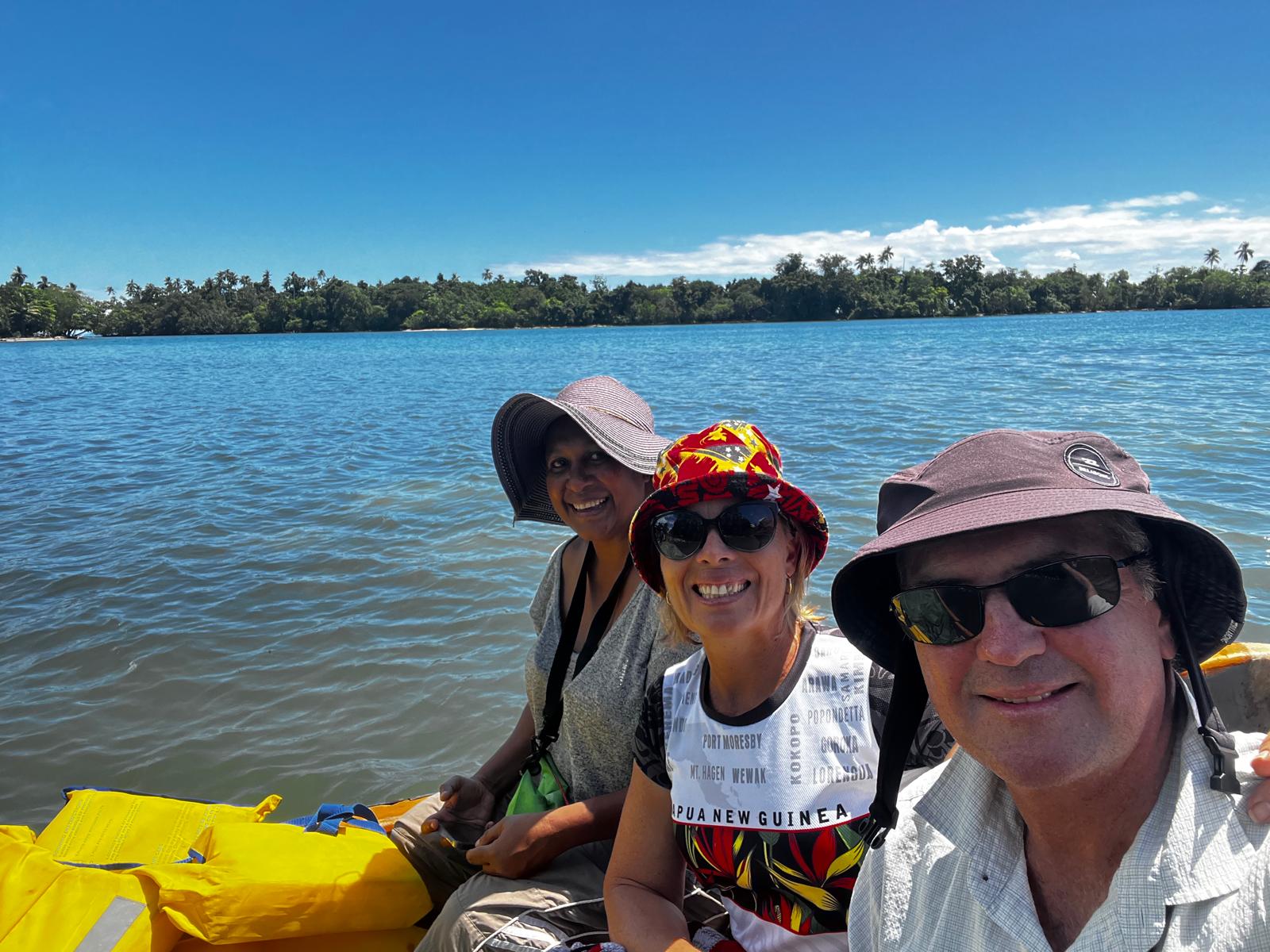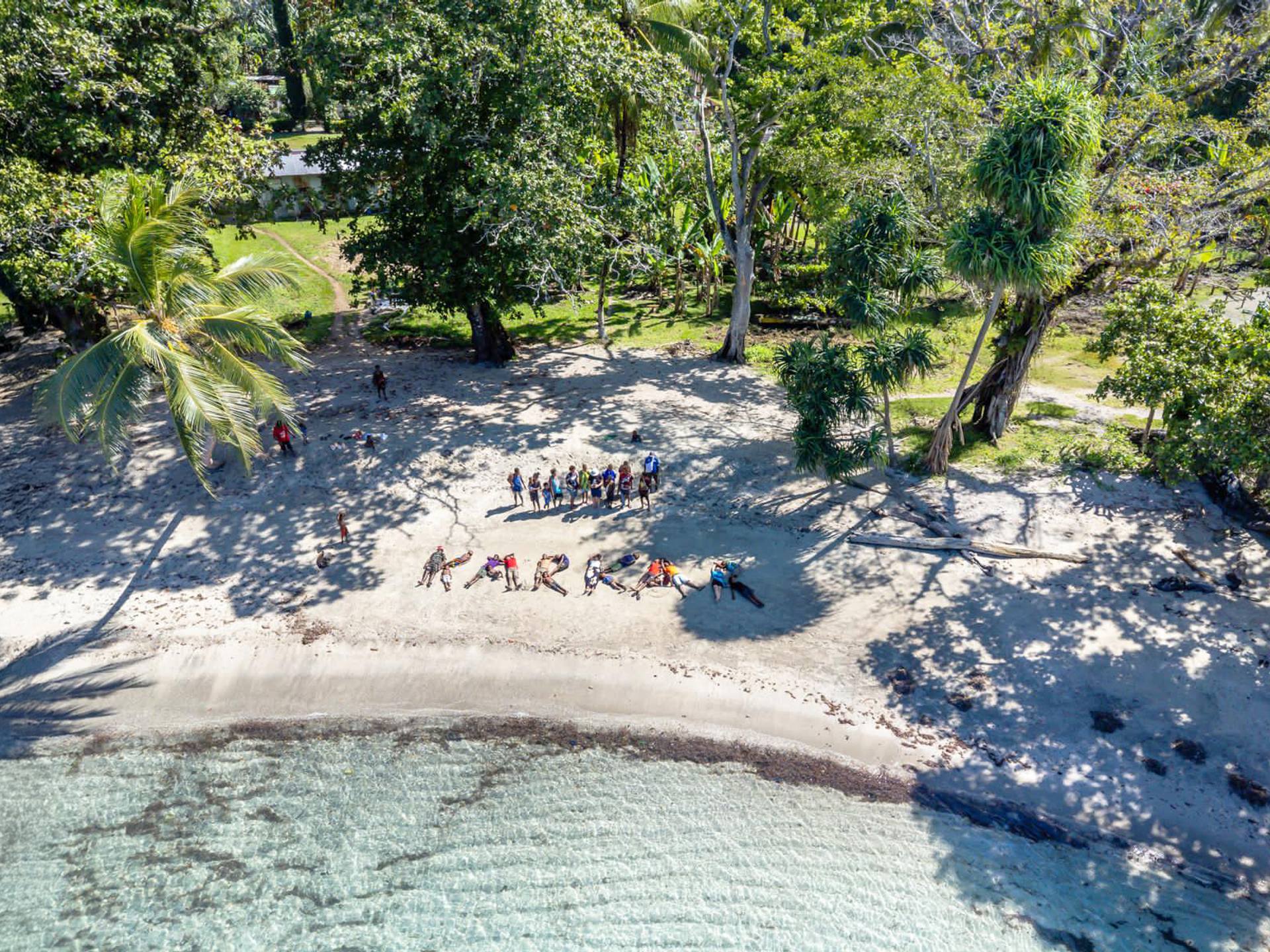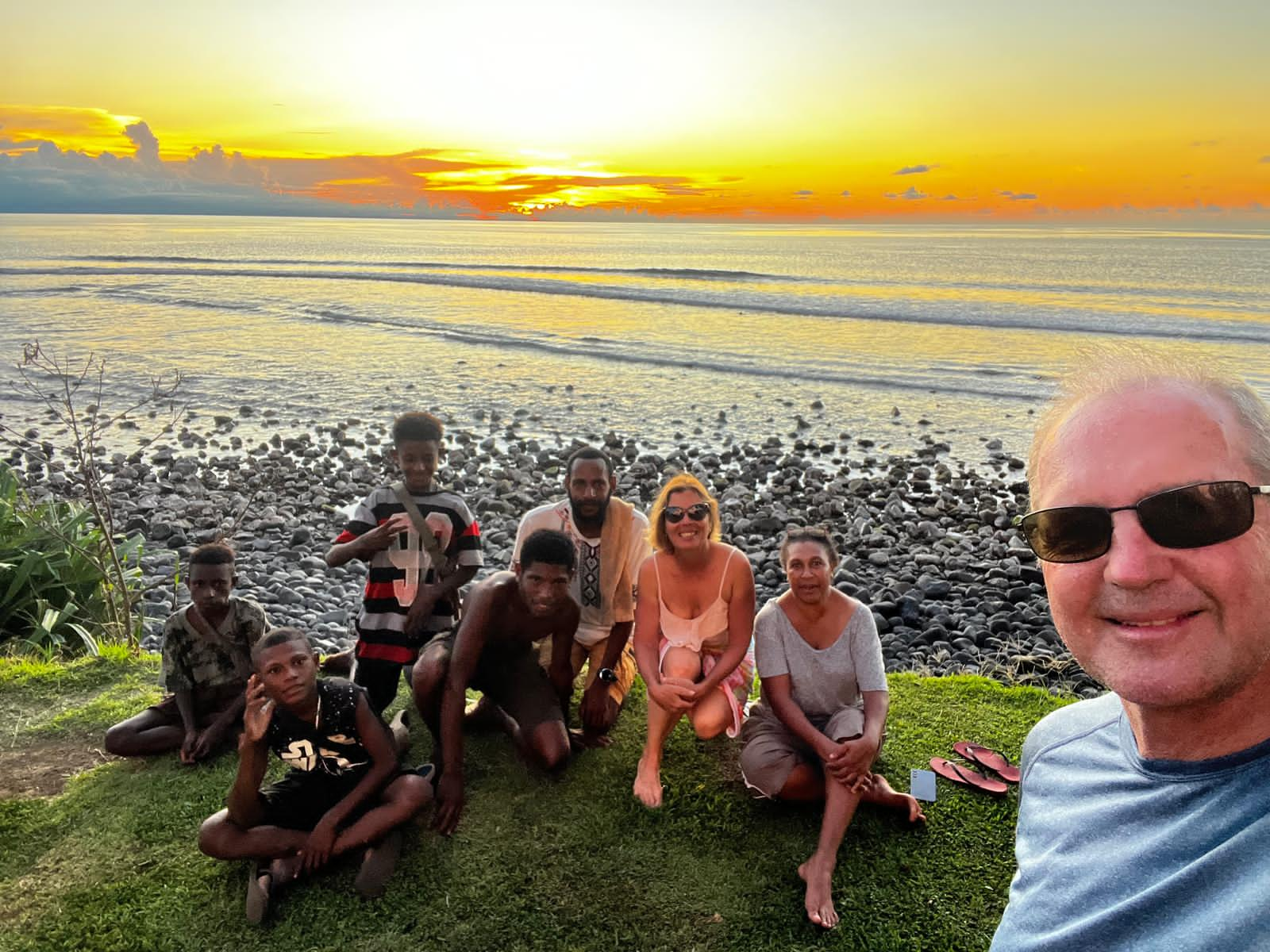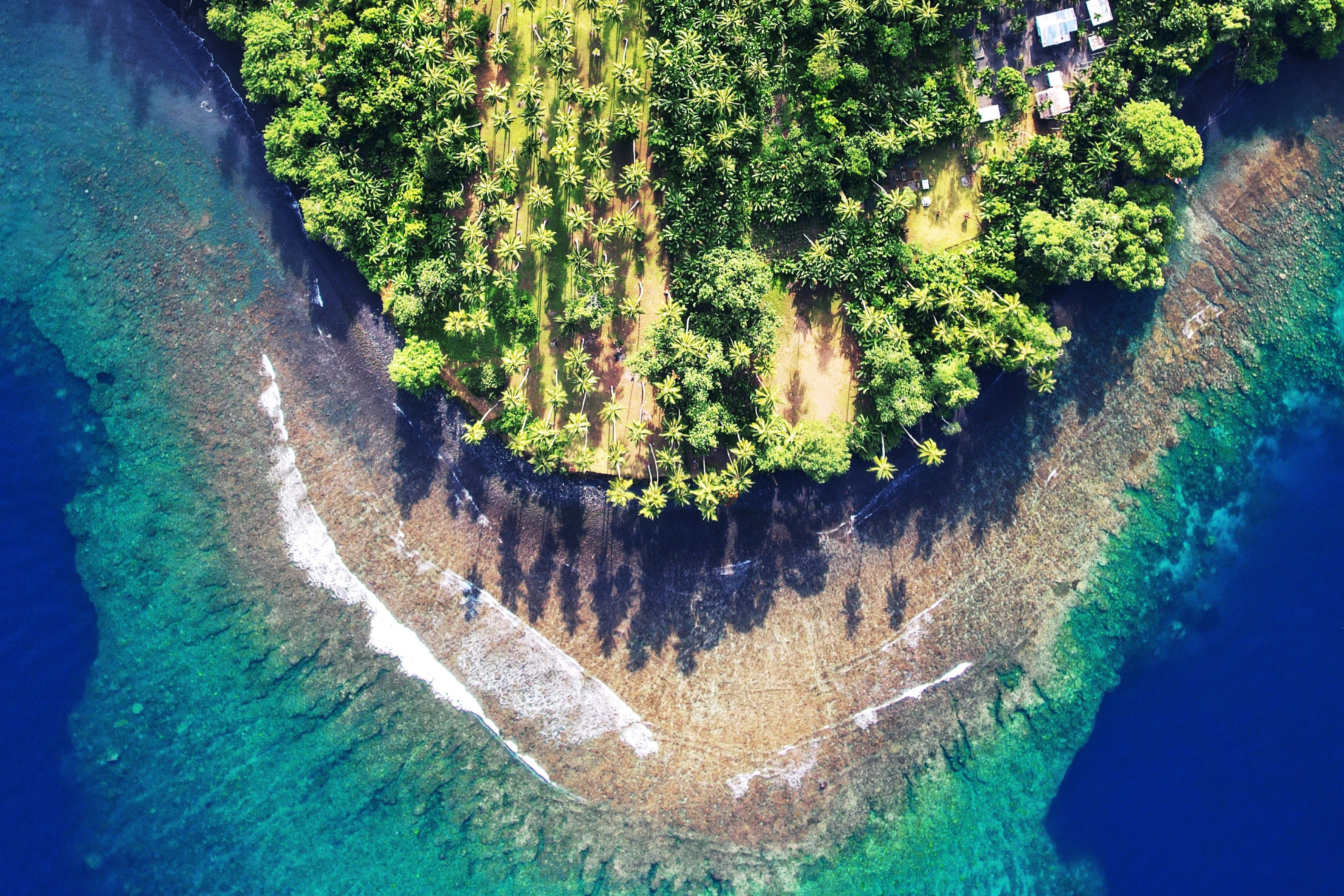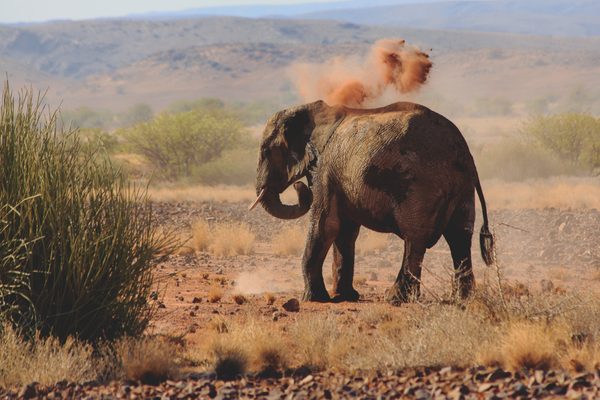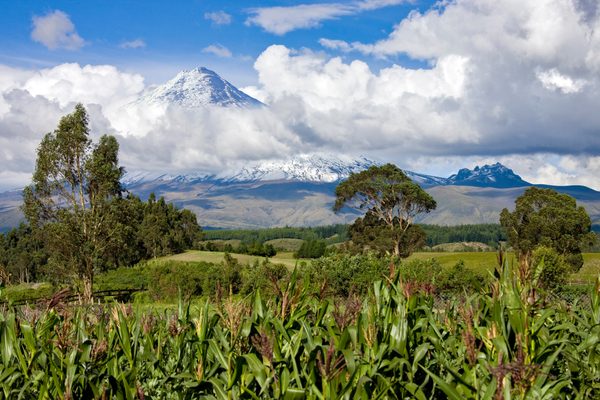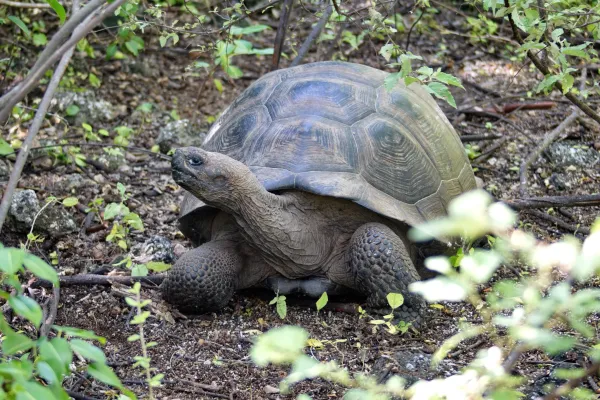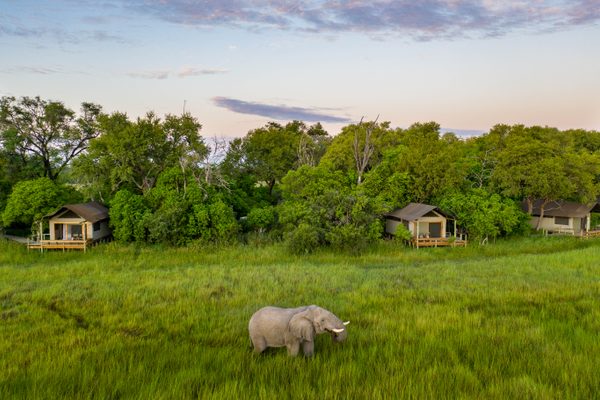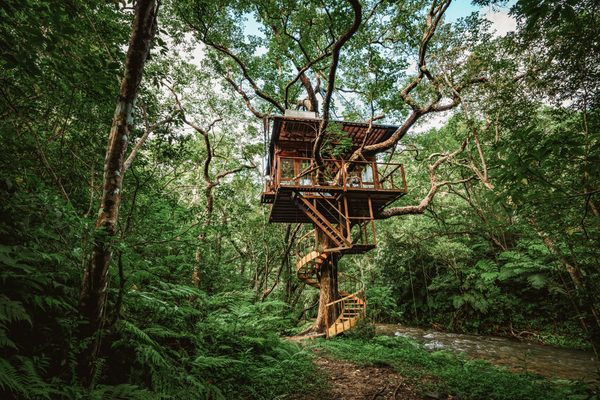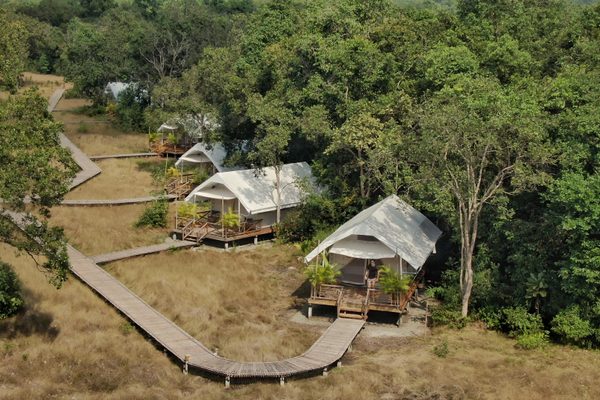Pero Pero Eco-Guest House, Papua New Guinea
- Location
- Oceania, Papua New Guinea
- Price per person
- From 52 €
- Trip duration
- From 3 days
Nestled in the heart of the Bismarck Sea, KarKar Island in Papua New Guinea offers a vibrant blend of natural beauty and rich cultural heritage.
As an eco-conscious and comfortable retreat, Pero Pero Eco-Guest House serves as the ideal base for travellers seeking tranquility among century-old swaying coconut palms and panoramic sea views.
Picture yourself watching the sunset from a lush, evergreen lawn—a true piece of paradise. Designed for self-sufficiency, the guest house features solar-powered lighting and rainwater harvesting systems.
The accommodations are thoughtfully constructed from local timber and bamboo, blending natural materials with modern amenities, including clean and functional bathrooms. Every aspect of the property reflects a commitment to energy efficiency and minimal environmental impact.
- Name: Pero Pero @ Mangul Eco-Guest House
- Year build: 2021
- Location: Kuburne Village, Karkar Is, Madang, Papua New Guinea
- Languages: English, Tok Pisin
- Locations: Oceania
- Accommodation types: Off-Grid Cabin
- Specifics: Renewable energy, Water Conservation, Organic Gardens, Self-sufficient, Composting / Recycling, Nature based activities, Educational programs, Local and organic food
- Activities being offered: Volcanoe Hike, Island Tour, Mt. Kanagio Highest Peak Hike, Snorkeling, Diving, Dolphin watch, sight a sting ray, turtles, sharks, waterfall hikes,
- Certifications: PNG Tourism Industry Association Member GGGI - Certificate of Excellence - Incubator Business Plan GGGI - Certificate of Award - 1st Runner Up of the Pacific Greenpreneurs Accelerator Investors Pitch 2023 GGGI
- Accommodation variations: Twin room (2 single beds), Single room with a double bed, two bungalows
Meals are served in traditional wooden bowls with coconut shell utensils—a tribute to ancestral traditions the team is dedicated to preserving. Pero Pero is more than just a place to stay, it's a sanctuary where guests feel safe, cared for, and genuinely welcomed. The warm hospitality and personalised service foster a deeper connection to the island and its people, creating a reciprocal learning experience.
Through immersive eco-tourism, guests are invited to engage in local practices: from gardening and hunting to traditional dancing and the crafting of Garamut Drums and the renowned Karkar Bilums.
Rooted in a deep respect for land and heritage, the team at Pero Pero remains committed to sustaining the gifts of their ancestors and sharing their culture through both experience and taste, including a chance to sample authentic local delicacies.
What is special about the Pero Pero Eco-Guest House?
Pero Pero @ Mangul Eco-Guest House is a truly enchanting retreat for eco-conscious travellers, offering a rare sense of peace and connection in the heart of the South Pacific. Tucked away within a century-old coconut plantation founded by the owner’s grandfather, and surrounded by vibrant green lawns, this hidden haven overlooks the shimmering waters of the Bismarck Sea. Guests often speak of the deep sense of stillness and seclusion, describing it as a sanctuary far removed from the distractions of modern life.
The guest house features thoughtfully crafted bungalows built with locally sourced bamboo and sago palm, showcasing traditional craftsmanship and a deep respect for sustainable living. Each bungalow blends natural materials with modern comfort, offering fresh open layouts and clean, functional bathrooms. The view from each space—towering coconut palms swaying gently in the breeze, a carpet of lush greenery—invites instant calm.
A short walk leads to the edge of the property where the sea unfolds in all its splendour. This is a place where local birdlife thrives, flying foxes drift across the sky, and dolphins are known to pass by. As the sun sets over the Bismarck Sea, painting the horizon in ever-changing colours, visitors are reminded of nature’s quiet power to restore and inspire. As one guest described it, "a place to truly unwind and reconnect with nature."
»A magical retreat where you can unwind and reconnect with nature amidst century-old palms and breathtaking Bismarck Sea sunsets.«
What unique features are incorporated in the Pero Pero Eco-Guest House?
Pero Pero @ Mangul Eco-Guest House is designed with the conscious traveller in mind, offering thoughtful features that reflect a deep commitment to sustainability and low-impact living. Entirely off the grid, the property operates using solar energy for lighting and charging, in harmony with its remote island setting. Freshwater needs are met through a system of rainwater collection tanks, which supply all bathrooms and communal areas, significantly reducing environmental strain.
Waste management follows a holistic, locally adapted approach. Food scraps are used to nourish the gardens or animals, while other waste is carefully sorted and processed in dedicated pits. Wherever possible, natural materials – such as banana leaves – are used instead of plastic, reinforcing the team’s commitment to environmental stewardship.
The bungalows themselves are a testament to local craftsmanship, constructed with bamboo and sago palm to create a space that is both natural and refined. Open floor plans encourage air flow, while strategically placed windows and translucent roofing invite daylight in, reducing the need for artificial lighting. Each structure opens onto views of swaying coconut palms and peaceful green lawns, allowing guests to feel a deep connection to their surroundings.
From the materials used to the careful design, every detail speaks to a harmonious blend of comfort and ecological awareness. For those seeking meaningful, mindful travel experiences, Pero Pero offers an inspiring model of what truly sustainable hospitality can look like.
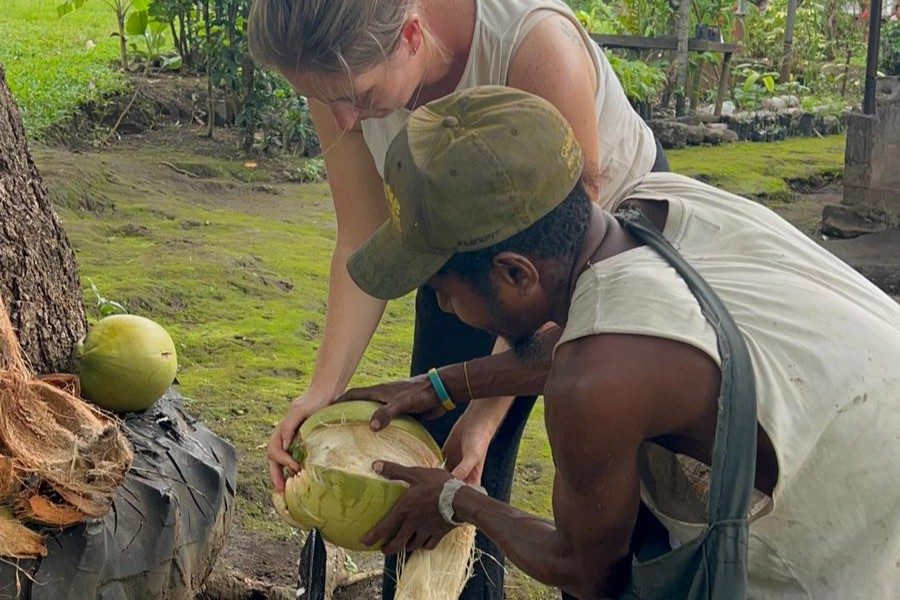
What activities are being offered at the Pero Pero Eco-Guest House?
Activities at Pero Pero at Mangul Eco-Guest House go beyond simple leisure. They offer an invitation to experience KarKar Island through the eyes of its people, its landscapes, and its living traditions. Each moment encourages meaningful connections with the island’s natural beauty and cultural richness.
Nature lovers can take guided hikes to Mount Uluman, a dormant yet mystical volcano, and Mount Kanagio, the highest peak on KarKar. Along the coast, white and black sand beaches meet crystal-clear waters that are perfect for snorkelling, diving, and paddling. These excursions often lead to sightings of turtles, dolphins, stingrays, and colourful coral reefs, deepening appreciation for the island’s fragile marine ecosystems.
Cultural exploration is just as immersive. Guests can join elders for storytelling beneath the stars, try weaving the island’s iconic Karkar bilums, or learn about coconut and copra production—from husking a kulau for fresh juice to preparing local dishes with freshly grated coconut.
Island tours provide insight into KarKar’s rich history, including visits to the cemetery of the first German missionaries and the well-known Gaubin Hospital. Sampling traditional foods like Phrong adds even more depth to the experience. Every activity is grounded in genuine exchange and respect, reflecting the guest house’s commitment to sustainable tourism and preserving KarKar Island’s natural and cultural heritage.
Five specialties of Pero Pero Eco-Guest House and the Island of Karkar
1) Experience a truly off-grid sanctuary
Karkar Island has no public electricity grid, making Pero Pero’s use of solar power and rainwater harvesting central to its authentic, conscious experience. This goes beyond eco-friendliness—it offers genuine immersion in sustainable island living. The serene quiet that comes from disconnecting from urban noise and artificial light allows guests to fully appreciate nature’s sounds and the dazzling night sky.
2) The Karkar Bilum: More than just a bag
Weaving the famous Karkar bilums carries deep ancestral meaning. Often a rite of passage for young women, these intricately crafted bags embody the island’s identity, values, traditions, and artistry. They stand as cultural treasures far beyond their economic value.
3) A living volcano: Mount Uluman
Mount Uluman, a mystical and active stratovolcano, nourishes the island with fertile volcanic soil. This richness sustains KarKar’s lush landscape and agricultural bounty, directly linking the natural environment to local life and the fresh produce enjoyed by guests.
4) The unique charm of KarKar Island
KarKar remains a rare gem, untouched by mass tourism. Its off-the-beaten-path allure attracts true explorers seeking authentic cultural immersion and pristine natural beauty. Staying at Pero Pero offers a private, intimate experience—a chance to discover something truly special before it becomes widely known.
5) Local delicacies and the “Phrong”
The “Phrong” is more than a dish, it’s a heartfelt taste of heritage. Served as a welcoming and farewell tradition, it embodies ancestral foodways and the island’s rich agricultural history. Enjoying Phrong provides guests with a direct connection to local culture, honoring traditions passed down through generations.
Pero Pero Eco-Guest House
Pero Pero Eco-Guest House on KarKar Island offers an off-grid retreat with bamboo bungalows, solar power, and rainwater systems. Surrounded by coconut palms and ocean views, it provides a peaceful escape. Guests can enjoy volcano hikes, snorkeling, island tours, and local traditions like bilum weaving. Designed for sustainability and comfort, it’s perfect for travellers seeking tranquility and a deep connection with nature.
Learn moreSign up for the newsletter
By clicking on “Subscribe now” I will subscribe to the Conscious Explorer newsletter with all the information about mindful travel. Information on the success measurement included in the consent, the use of the shipping service provider MailChimp, logging of the registration and your rights of revocation can be found in our privacy policy.

